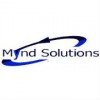Database Administrator DBA
40+ Database Administrator DBA Interview Questions and Answers
Asked in Goolean Technologies

Q. How do you load a CSV file into a database from the command prompt?
To load a CSV file into a database from the command prompt, you can use the database's command-line interface or a scripting language.
Ensure the database is installed and accessible from the command prompt
Use the appropriate command or script to connect to the database
Create a table in the database with the same structure as the CSV file
Use the appropriate command or script to import the CSV file into the table
Verify the data has been successfully loaded
Asked in Goolean Technologies

Q. How do you source a SQL file into a database from the command prompt?
To source a SQL file into database from command prompt, use the 'mysql' command followed by the database name and file path.
Open command prompt
Navigate to the directory where the SQL file is located
Use the 'mysql' command followed by the database name and file path
Example: mysql -u username -p database_name < file_path.sql

Asked in IBM

Q. RAC architecture,startup and shutdown process steps in RAC, migration of spfile,asm migration
Answering questions on RAC architecture, startup and shutdown process, spfile and ASM migration
RAC architecture involves multiple nodes sharing a common storage and network infrastructure
Startup process involves starting the Oracle Clusterware stack, starting the database instances, and mounting the database
Shutdown process involves dismounting the database, stopping the database instances, and stopping the Oracle Clusterware stack
Migration of spfile involves copying the spfi...read more
Asked in REDMIL GROUP

Q. How many Maximum use from company organizing data ?
The maximum use of data organization depends on the company's needs and resources.
The maximum use of data organization varies from company to company.
It depends on the size of the company, the amount of data they generate, and their resources.
Some companies may require more advanced database management systems to handle their data.
Examples of companies with high data usage include social media platforms, e-commerce websites, and financial institutions.

Asked in Wipro

Q. How do you install SQL Server on a laptop?
To install SQL Server on a laptop, download the installation file from Microsoft's website and follow the installation wizard.
Download the SQL Server installation file from Microsoft's website
Run the installation file and follow the installation wizard
Choose the appropriate installation options, such as the edition and features
Set up the necessary authentication and security settings
Complete the installation process and verify that SQL Server is running

Asked in Cirrius

Q. What are DBMS and RDBMS, and what are the differences between them?
DBMS is a software system that manages databases, while RDBMS is a type of DBMS that uses a relational model.
DBMS stands for Database Management System, which is a software system that manages databases.
RDBMS stands for Relational Database Management System, which is a type of DBMS that uses a relational model.
DBMS can manage any type of database, while RDBMS manages only relational databases.
DBMS does not enforce any specific data model, while RDBMS enforces the relational d...read more
Database Administrator DBA Jobs




Asked in Cirrius

Q. What are SQL and PL/SQL, and how do they differ?
SQL is a language used to manage relational databases, while PL/SQL is a procedural language used to enhance SQL functionality.
SQL is used to create, modify, and query databases
PL/SQL is used to create stored procedures, functions, and triggers
SQL is a declarative language, while PL/SQL is a procedural language
SQL is used to manipulate data, while PL/SQL is used to manipulate the behavior of SQL
SQL is used in various database management systems, while PL/SQL is specific to Or...read more

Asked in Infosys

Q. How do you add a datafile?
To add a datafile in a database, use the ALTER TABLESPACE statement.
Connect to the database as a user with the necessary privileges.
Identify the tablespace where you want to add the datafile.
Use the ALTER TABLESPACE statement with the ADD DATAFILE clause to add the datafile.
Specify the file name, size, and other attributes of the datafile.
Example: ALTER TABLESPACE users ADD DATAFILE '/path/to/datafile.dbf' SIZE 100M;
Share interview questions and help millions of jobseekers 🌟


Asked in The Guardian

Q. What is the difference between sequential and scattered reads in Oracle?
Sequential read reads data in order while scattered read reads data randomly.
Sequential read is faster for large amounts of data accessed in order.
Scattered read is faster for small amounts of data accessed randomly.
Sequential read is used for full table scans while scattered read is used for index lookups.
Sequential read is efficient for reading data from disk while scattered read is efficient for reading data from memory.

Asked in Walmart

Q. Where are the Oracle and SQL error logs located, and how do you analyze them?
Oracle and SQL error logs are crucial for diagnosing database issues and performance monitoring.
Oracle alert log: Located in the 'alert_' directory, typically found in the 'diag' directory of the Oracle home.
SQL Server error log: Found in the SQL Server Management Studio under 'Management' > 'SQL Server Logs'.
Example of Oracle alert log entry: 'ORA-01555: snapshot too old' indicates a problem with undo data.
Example of SQL Server error log entry: 'Login failed for user' indica...read more

Asked in Amazon

Q. What are the different types of explain plans?
Different types of explain plans include basic, serial, parallel, and statement-level.
Basic explain plan shows the execution plan of a SQL statement
Serial explain plan shows the execution plan for a serial query
Parallel explain plan shows the execution plan for a parallel query
Statement-level explain plan shows the execution plan for each SQL statement in a PL/SQL block

Asked in Clover Infotech

Q. How would you resolve scenario-based questions using core trending technologies?
Resolving scenario-based questions involves analyzing the problem, applying best practices, and leveraging technology effectively.
Identify the core issue: Understand the specific problem presented in the scenario.
Analyze the database structure: Review tables, relationships, and constraints to pinpoint potential causes.
Apply best practices: Use established DBA practices, such as indexing for performance issues or normalization for data integrity.
Leverage tools: Utilize monitor...read more

Asked in The Guardian

Q. 1. oracle upgrade from one version to another.
Oracle upgrade involves planning, testing, and executing the upgrade process.
Identify the current and target versions
Review the upgrade documentation and release notes
Perform a test upgrade in a non-production environment
Backup the database before upgrading
Run the pre-upgrade script to identify potential issues
Upgrade the software and database components
Run the post-upgrade script to complete the upgrade process
Perform functional and performance testing after the upgrade
Asked in Goolean Technologies

Q. What is the MySQL backup command from the command prompt?
MySQL backup command from command prompt
Use mysqldump command to backup MySQL database from command prompt
Syntax: mysqldump -u [username] -p [password] [database_name] > [backup_file_name.sql]
Example: mysqldump -u root -p mypassword mydatabase > mybackup.sql

Asked in Medanta S.N. Superspecialty Hospital

Q. 2. Strong hold in any one subject
My strong hold is in database design and optimization.
Expertise in designing efficient and scalable database schemas
Proficient in optimizing database performance through indexing and query optimization
Experience in implementing database security measures
Familiarity with various database management systems such as MySQL, Oracle, and SQL Server

Asked in Axis Bank

Q. Tell something about assets
Assets are resources owned by an individual or organization that have value and can be used to generate income.
Assets can be tangible, such as property, equipment, or inventory.
Assets can also be intangible, such as patents, trademarks, or goodwill.
Assets are typically listed on a balance sheet and can be used to secure loans or investments.
Examples of assets include real estate, vehicles, stocks, and cash.
Managing assets effectively is important for financial stability and g...read more

Asked in Morningstar

Q. What is data?
Data is information that is stored and organized in a structured or unstructured format.
Data refers to facts, statistics, or information that can be processed or analyzed.
It can be in the form of numbers, text, images, audio, video, etc.
Data can be stored in databases, spreadsheets, files, or any other storage medium.
Examples of data include customer names, product prices, sales figures, medical records, etc.
Asked in Xtancia Technosoft

Q. What is your typing speed?
My typing speed is around 70 words per minute.
My typing speed is measured at around 70 words per minute.
I have experience typing for extended periods of time without fatigue.
I am comfortable using a variety of keyboard layouts and typing software.
I prioritize accuracy over speed when typing important documents.
I am always looking for ways to improve my typing speed and efficiency.

Asked in Cirrius

Q. Normalization and Types of Normalization
Normalization is the process of organizing data in a database to reduce redundancy and improve data integrity.
Normalization involves breaking down a table into smaller tables and defining relationships between them.
There are different levels of normalization, including first normal form (1NF), second normal form (2NF), and third normal form (3NF).
1NF involves ensuring that each column in a table contains atomic values, while 2NF involves removing partial dependencies and 3NF ...read more

Asked in Wipro

Q. What is a database?
A database is a structured collection of data that is organized and stored for easy access, management, and retrieval.
A database is a software system that manages and stores data.
It provides a way to organize and structure data in a logical manner.
Data in a database is typically stored in tables, which consist of rows and columns.
Databases allow for efficient storage, retrieval, and manipulation of data.
Examples of databases include MySQL, Oracle, and MongoDB.

Asked in Clover Infotech

Q. What is the Oracle Architecture?
Oracle Architecture refers to the structure and components of the Oracle database system.
Oracle Architecture consists of physical and logical components
Physical components include memory, storage, and processes
Logical components include tablespaces, data files, and schema objects
Oracle Architecture follows a client-server model
Oracle Architecture supports multi-tier architecture
Oracle Architecture is designed to provide high availability and scalability

Asked in TRINAMIX

Q. How do you create a table?
To create a table, use the CREATE TABLE statement followed by the table name and column definitions.
Use CREATE TABLE statement
Specify table name
Define columns with data types and constraints
Example: CREATE TABLE customers (id INT PRIMARY KEY, name VARCHAR(50), email VARCHAR(100));

Asked in Labmentix

Q. What is metadata?
Metadata is data that describes other data.
Metadata provides information about the structure, content, and context of data.
It can include information such as data type, format, source, and ownership.
Examples of metadata include file properties, database schema, and website tags.
Metadata is used by applications to manage and organize data.
It is also used for data analysis, search engine optimization, and digital preservation.

Asked in Infosys

Q. Explain the ORA-00060 error.
ORA-00600 is an internal error code that indicates a software bug or corrupted data.
ORA-00600 is a generic error message that indicates an internal error has occurred.
It is caused by a software bug or corrupted data.
It is a critical error that requires immediate attention from the DBA.
The error message includes a code that identifies the specific error.
The error can be resolved by applying a patch or contacting Oracle support.
Examples of ORA-00600 errors include: ORA-00600: i...read more

Asked in Senco Gold

Q. Tell me about yourself.
I am an experienced DBA with a passion for optimizing database performance and ensuring data security.
I have over 5 years of experience as a DBA
I am skilled in database design, implementation, and maintenance
I have expertise in SQL, Oracle, and MySQL
I am familiar with backup and recovery procedures
I am committed to ensuring data security and privacy

Asked in Infosys

Q. What are the high-level steps to clone a database?
Cloning high level steps involve creating a copy of an existing database or server.
Identify the source database or server to be cloned
Create a backup of the source database or server
Restore the backup to a new location or server
Modify the cloned database or server as needed
Test the cloned database or server to ensure it functions properly

Asked in Wipro

Q. Joints and types examples
Joints are used to combine data from multiple tables in a database. There are different types of joints such as inner, outer, left, and right.
Inner join returns only the matching rows from both tables
Outer join returns all the rows from both tables and null values for non-matching rows
Left join returns all the rows from the left table and matching rows from the right table
Right join returns all the rows from the right table and matching rows from the left table

Asked in Infosys

Q. Explain the ORA-00600 error.
ORA-600 is an internal error code in Oracle database.
It is a generic error that indicates that something unexpected has occurred within the database.
It is usually accompanied by a detailed error message that provides more information about the cause of the error.
It can be caused by a variety of factors, including software bugs, hardware failures, and data corruption.
It is important to diagnose and resolve ORA-600 errors as soon as possible to prevent data loss or other issues...read more

Asked in Cirrius

Q. Types of backup
Types of backup include full, incremental, differential, and snapshot.
Full backup: backs up all data in a database
Incremental backup: backs up only the changes made since the last backup
Differential backup: backs up only the changes made since the last full backup
Snapshot backup: creates a point-in-time copy of the database

Asked in IBM

Q. What are the steps to implement Data Guard in RAC?
Data Guard steps in RAC
Configure primary and standby databases
Enable archive log mode on primary database
Create standby control file on standby database
Start the Data Guard broker
Start the redo apply process on standby database
Interview Experiences of Popular Companies





Top Interview Questions for Database Administrator DBA Related Skills

Calculate your in-hand salary
Confused about how your in-hand salary is calculated? Enter your annual salary (CTC) and get your in-hand salary


Reviews
Interviews
Salaries
Users










